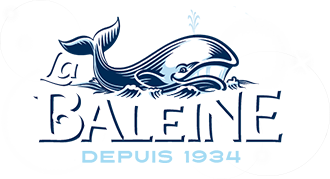Salt: essential to life

Sea Salt is essential to the metabolism and to the balance of our organism. It is made up of 40% sodium (Na) and 60% chlorine (Cl). It helps the muscles to contract by sending them nerve impulses and contributes towards the smooth running of the heart. It also helps to regulate arterial pressure and stimulates digestion.
A daily quantity of 5 to 6 g of salt is enough to cover all your daily needs. The salt that you add to your cooking or at the table accounts for only 10 to 20% of the quantity of salt that we consume every day. As the National Nutrition and Health Plan recommends, we need to consume those day-to-day products that contain salt naturally or by addition in reasonable quantities.



La Baleine has long been committed to playing an active role with its consumers by offering iodized and fluorinated salts recommended by the National Health Nutrition Program. Similarly, Unicef recommends salt iodization.
-
